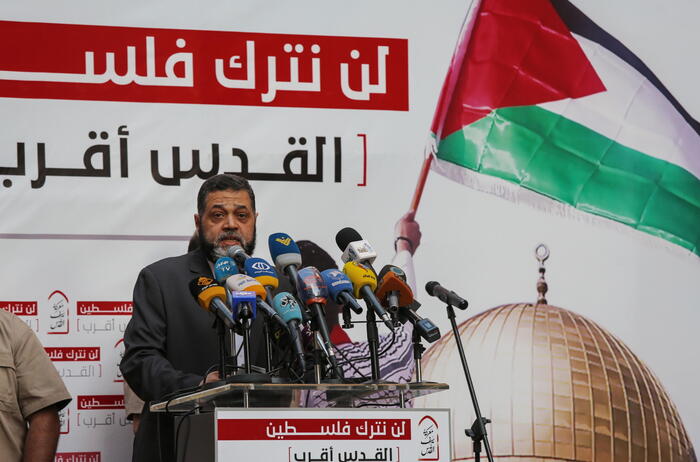In an attempt to quell the ongoing conflict in Gaza, President Joe Biden has presented a new proposal aimed at reaching a comprehensive ceasefire between Israel and Hamas. Key figures, including high-ranking Hamas representative Osama Hamdan, have expressed cautious optimism about Biden's statement, but stress the need for 'clear texts' to achieve concrete results.
Hamdan highlighted the necessity for Israel to accept the terms openly and not in an evasive manner. He emphasized the need for a 'complete agreement' involving a permanent ceasefire, the withdrawal of Israeli forces from Gaza, and reconstruction of the territory. Without these specific terms, he argues, hopes alone are insufficient to reach a lasting solution.
The mediation process involves not only the United States but also Qatar and Egypt. These countries have urged both Israel and Hamas to finalize a ceasefire agreement based on President Biden's laid-out principles. The mediators have been engaged in prolonged discussions aiming to secure a truce deal, but efforts were disrupted last month due to an Israeli ground operation in Rafah. Biden's proposal, as articulated in a joint statement by the three mediators, aims to cater to 'the demands of all parties' and serves 'numerous interests' towards a peaceful resolution.
President Biden's three-step roadmap includes immediate actions towards a permanent ceasefire and the release of hostages held in Gaza. The comprehensive plan seeks to bring lasting stability to the region by addressing the core issues that fuel the conflict. The joint declaration from Qatar, the U.S., and Egypt underlines that Biden's principles offer a viable roadmap to end the crisis effectively.
- The international community has closely watched these developments, given the longstanding and volatile nature of the Israel-Hamas conflict. Analysts suggest that a clear and committed agreement could pave the way for significant progress in the region.
- The mediators' involvement is seen as crucial, given their strategic positions and influence. Qatar has long been a supporter of Hamas, while the U.S. and Egypt hold distinct sway over Israeli actions. This coalition reflects a significant diplomatic effort to achieve peace
- A successful agreement would not only halt immediate hostilities but could also lead to broader talks focused on long-term stability in the Middle East. Such an outcome is seen as beneficial for regional and global security.






